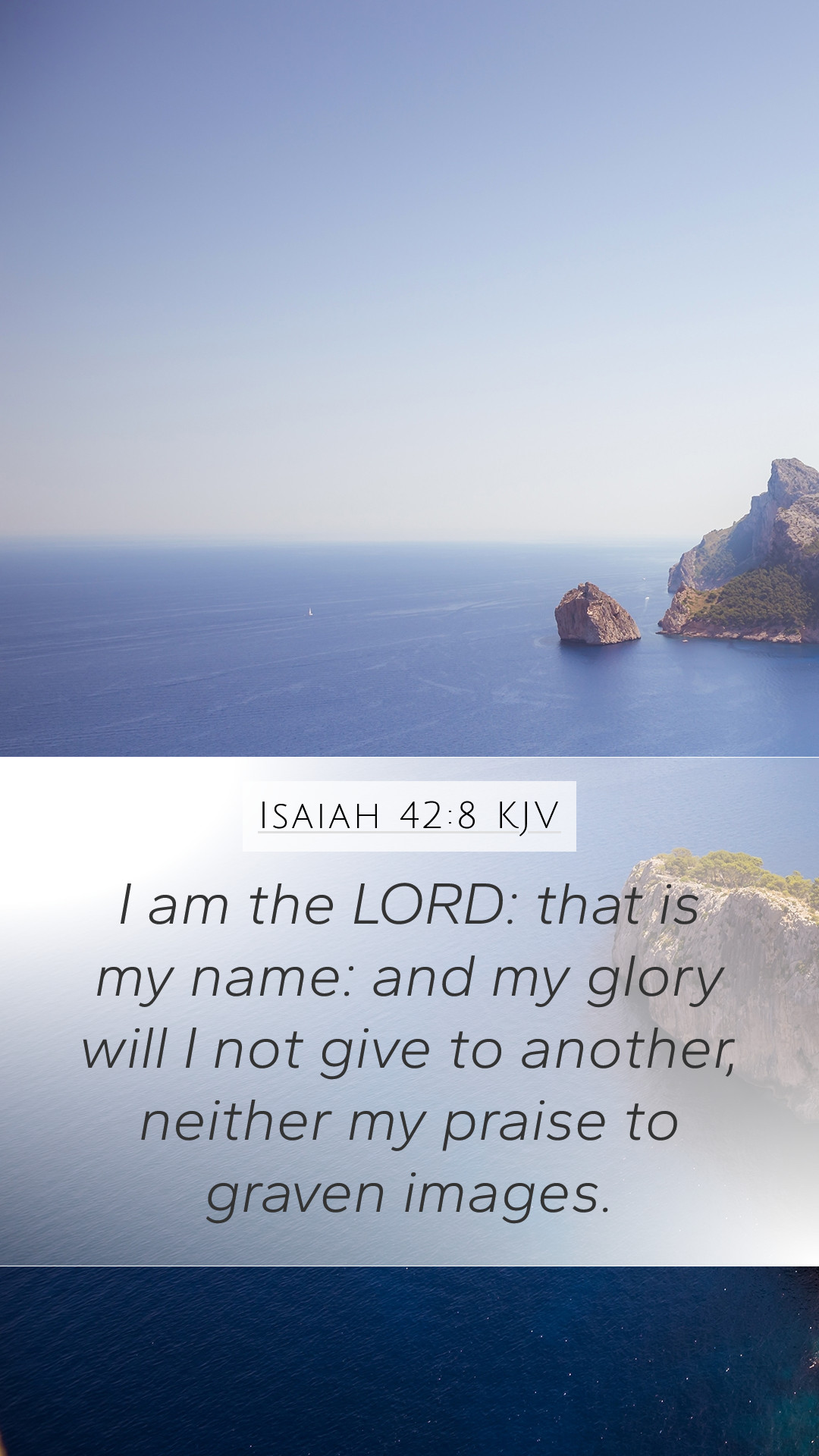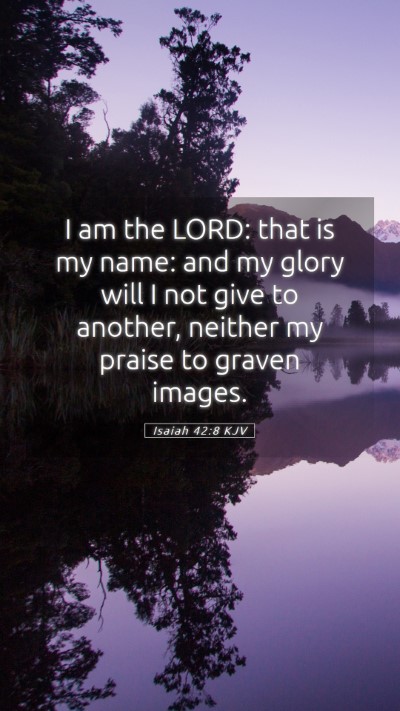This verse serves as a profound declaration of God's singularity and the exclusive nature of His divinity. It emphasizes that the name of the Lord is not only sacred but also central to His identity and the worship He demands. Below is a detailed exploration of its meaning through the lens of public domain commentaries.
Understanding Scripture
1. The Name of the Lord:
Albert Barnes emphasizes the importance of God's name being synonymous with His character and authority. The use of "I am" signifies His eternal self-existence and sovereignty. This is a proclamation that contrasts God's everlasting nature with the fleeting nature of idols.
2. God's Glory and Idolatry:
Matthew Henry notes that God’s refusal to share His glory with another highlights the futility of idolatry. The verse serves as a reminder that no created thing can bear the weight of divine glory and worship, which is solely due to the Creator.
3. Exclusivity of Worship:
Adam Clarke elaborates on the significance of divine exclusiveness. He explains that God's glory cannot be entrusted to images made by human hands, which ultimately lack life and power. This underscores the importance of worship directed solely toward God and not to human-made entities.
Bible Verse Explanation
This passage invites readers into a deeper exploration of monotheism, calling them to reflect on the implications of the eternal name of God. It fosters an understanding of divine glory that is unparalleled and cannot be divided with false representations.
Contextual Insights
The historical context of Isaiah reveals a time when Israel faced rampant idolatry and the temptation to worship other gods. Isaiah’s message was to reaffirm the uniqueness and supremacy of Yahweh amid such spiritual confusion.
Application of the Verse
In applying this verse to daily life, believers are encouraged to examine their own lives for competing affections or idols. It challenges them to ensure their worship remains directed toward God alone, recognizing His unmatched glory and sovereignty.
Additional Bible Cross References
- Exodus 20:3-5 - God's command against idolatry.
- Isaiah 48:11 - God’s determination to protect His glory.
- Psalm 115:4-8 - The impotence of idols compared to the living God.
- Revelation 4:11 - The worship of the Creator for His glory.
Bible Study Tools and Resources
This passage serves as a springboard to explore further biblical themes surrounding God's glory, identity, and the dangers of idolatry. For deeper study, materials that discuss the character of God, idolatry in the Old Testament, and the nature of worship can be beneficial.
Conclusion
In summary, Isaiah 42:8 is a powerful declaration of God's singular reign and the exclusivity of worship that belongs to Him alone. It serves as an important reminder for believers to respect and venerate the one true God, ensuring that their lives reflect His glory through their thoughts, actions, and worship.
Importance of Bible Verse Interpretations
Accurate interpretations of scripture can bring clarity and depth to theological understanding. Engaging with this verse invites believers to consider the implications of God's name and the importance of worshiping Him authentically.
Encouragement for Bible Study Groups
As Bible study groups delve into such verses, they can create discussions around the implications of worship, idolatry, and the nature of God's character. Facilitating studies on this topic can enhance understanding and application in each participant's life.


